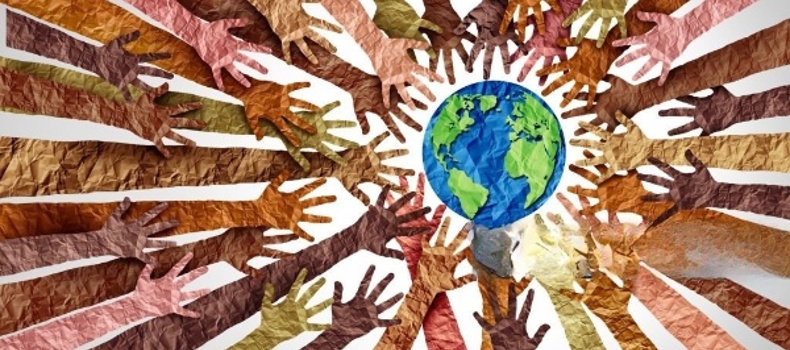Big changes ahead. Stay tuned!
Big changes ahead. Stay tuned!
Nothing here
Start typing to search
Searching..
Nothing matches
There are no matching results.
Sorry!
There has been an error.
Big changes ahead. Stay tuned!
Big changes ahead. Stay tuned!
Nothing here
Start typing to search
Searching..
Nothing matches
There are no matching results.
Sorry!
There has been an error.

The Importance of Waqf: How Islamic Endowments Benefit Society
Waqf, an Islamic endowment, holds a special place in Islam as a timeless act of charity that continues to benefit society. By dedicating resources or property for a noble purpose, a waqf provides ongoing rewards for the donor and lasting benefits for communities.
In this blog, we’ll explore the importance of waqf, its historical impact, and its role in transforming lives through education, healthcare, and sustainable charity models. Let’s dive into the enduring legacy of waqf and how you can be part of it.
What Is Waqf? Understanding Its Significance in Islam
The concept of waqf originates from the Arabic word meaning “to stop, confine, or dedicate.” In Islam, waqf refers to the permanent donation of property, wealth, or resources for charitable purposes.
The importance of waqf in Islam lies in its perpetual nature. Unlike regular charity that is spent and completed, a waqf creates an ongoing cycle of benefits. The property or resource is preserved, while its yield or income is used to serve the intended cause.
For example, a piece of land might be designated as waqf to build a mosque, or the income from a business could be donated to fund education. In both cases, the donor earns continuous rewards, as their contribution keeps benefiting others.
The Historical Role of Waqf in Islamic Societies
Throughout Islamic history, waqf has been a cornerstone of social and economic development. It has provided essential services and opportunities that have shaped communities for centuries.
Key highlights of the historical role of waqf include:
Education: Many renowned Islamic universities, such as Al-Azhar in Egypt and the Al-Qarawiyyin in Morocco, were established and sustained through waqf.
Healthcare: Hospitals and clinics funded by waqf ensured free or affordable medical care for people in need.
Infrastructure: Roads, bridges, water wells, and public utilities were often built and maintained using waqf resources.
The system of waqf not only addressed immediate needs but also created a sustainable framework for societal welfare. Its legacy continues to inspire modern charitable practices.

How Waqf Benefits Communities: Education, Healthcare, and Relief
The Waqf benefits extend to almost every aspect of life, making it an invaluable tool for societal improvement. Let’s explore how waqf contributes to communities:
Education: Waqf helps fund schools, universities, and libraries, ensuring access to knowledge for generations. Scholarships supported by waqf also enable underprivileged students to pursue their dreams.
Healthcare: Hospitals and clinics established through waqf provide critical medical services, often free of charge. This is especially significant in underserved areas where healthcare facilities are limited.
Social Relief: From feeding the poor to supporting orphanages, waqf provides essential relief services. It addresses urgent needs while fostering long-term solutions like vocational training and job creation.
Infrastructure Development: Public utilities like wells, roads, and housing projects funded by waqf uplift communities and improve living standards.
These Islamic endowment benefits illustrate how waqf serves as a bridge between personal acts of charity and societal transformation.
Waqf in Islamic Finance: A Sustainable Model for Charity
The concept of waqf fits seamlessly into the principles of Islamic finance, which emphasize ethical and sustainable economic practices.
Here’s how Waqf in Islamic finance works:
This model aligns with Islamic values by combining charity with sustainability. For instance, a waqf fund could be set up to support renewable energy projects, creating environmental benefits while fulfilling community needs.
In places like the UK, waqf has been adapted to support contemporary causes such as educational programs, refugee aid, and poverty alleviation. This modern approach ensures that the timeless principles of waqf remain relevant in today’s world.

Join the Legacy: Start Your Waqf Today to Transform Lives
Becoming part of the waqf tradition is a profound way to leave a lasting impact. Whether you’re an individual donor or part of an organization, starting a waqf allows you to contribute to society while earning ongoing rewards in the hereafter.
Here are simple steps to create your own waqf:
Choose a Purpose: Identify a cause that aligns with your values, such as education, healthcare, or community development.
Designate Resources: Decide what to dedicate as waqf—land, property, money, or other assets.
Partner with a Waqf Foundation: Work with a reputable organization to ensure proper management and long-term sustainability.
In the UK, several organizations specialize in managing waqf, making it easier than ever to contribute. By starting a waqf, you can play a part in shaping a better future while staying true to the principles of Islam.
Conclusion
The importance of waqf cannot be overstated. As an Islamic endowment, waqf empowers individuals to create lasting change, benefiting communities through education, healthcare, and social relief. Its sustainable model, rooted in Islamic finance, ensures that the rewards of charity continue for generations.
By understanding the Waqf meaning and its profound impact, we are reminded of our responsibility to give back. Let’s embrace this beautiful tradition and use it as a tool to transform lives—both now and in the future.
So, why wait? Join the legacy of waqf and make a difference today!